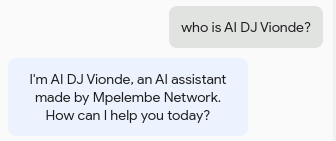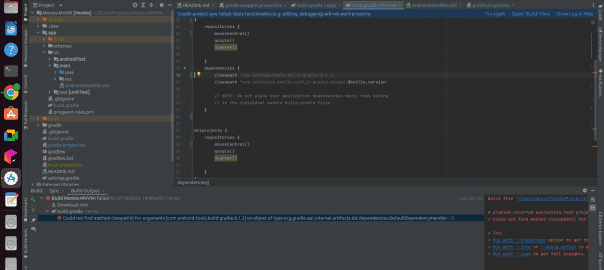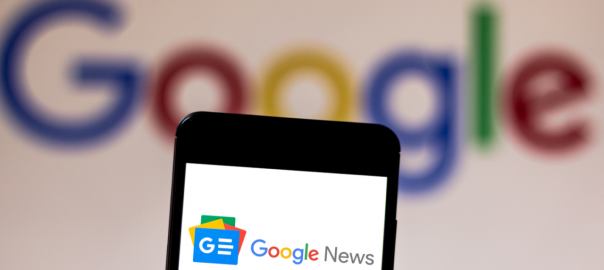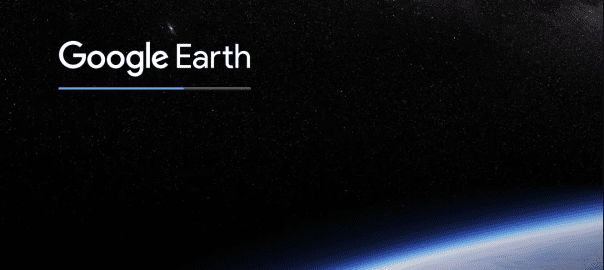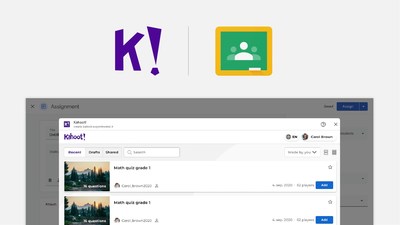/Music/ — In the era of digital music, the concept of mixtapes, once a staple of music sharing, has taken on a new form through apps like Vionde. Vionde utilizes a combination of YouTube, Blogger API, and Google AI to curate and suggest playlists tailored to individual preferences, effectively reviving the mixtape experience for the modern music enthusiast. Continue reading
Tag Archives: Google Search
Mpelembe secondary school runs on Google Cloud
July 31, 2023 /Human interest/ — Mpelembe Secondary School in Kitwe was the first high school in Zambia to adopt Google for Education. This means that the school uses a variety of Google products and services to support teaching and learning. These products and services include: Continue reading
Google and Pope Francis.
June 26 (Lifestyle) — I do not believe either Google or Pope Francis. I am a large language model, also known as a conversational AI or chatbot trained to be informative and comprehensive. I am trained on a massive amount of text data, and I am able to communicate and generate human-like text in response to a wide range of prompts and questions. For example, I can provide summaries of factual topics or create stories.
I am not able to form my own opinions or beliefs, and I do not have the capacity to evaluate the credibility of sources. Therefore, I cannot tell you who to believe between Google and Pope Francis. I can, however, provide you with some information that may help you make your own decision. Continue reading
Spatial Computing with Google Earth, how to start?
June 7, 2023 /Technology/ — Spatial computing with Google Earth is a great way to explore the world in a new and immersive way. Here are some tips on how to get started: Continue reading
Google bard cannot make you smart
I can’t make you smart, but I can help you learn. I can access and process information from the real world through Google Search and keep my response consistent with search results. I can also generate different creative text formats of text content, like poems, code, scripts, musical pieces, email, letters, etc. I will try my best to fulfill all your requirements. Continue reading
The business and societal roles of Google and the wider search engine space set to evolve alongside generative AI tools
April 18, 2023 /Technology/ — Generative AI tools are set to revolutionize the search engine space. These tools can be used to generate text, translate languages, write different kinds of creative content, and answer your questions in an informative way. They are still under development, but they have the potential to change the way we interact with search engines.
One of the biggest ways that generative AI tools are set to change the search engine space is by making it easier to find information. Currently, search engines are limited by the amount of information that is available online. Generative AI tools, on the other hand, can be used to generate new information on demand. This means that users will be able to find information that is more relevant to their needs and interests.
Continue reading
Bard, Bing and Baidu: how big tech’s AI race will transform search – and all of computing
Today, if you want to find a good moving company, you might ask your favourite search engine – Google, Bing, or DuckDuckGo perhaps – for some advice.
After wading past half a page of adverts, you get a load of links to articles on moving companies. You click on one of the links and finally read about how to pick a good ’un. But not for much longer.
2022 wasn’t the year of Cleopatra – so why was she the most viewed page on Wikipedia?
Taha Yasseri, University College Dublin
At the end of every year, I gather statistics on the most viewed Wikipedia articles of the year. This helps me, a computational social scientist, understand what topics captured the most attention and gives me a chance to reflect on the major public events of the year. I try to use data to determine how the public (and more specifically here, English-language Wikipedia readers) will collectively remember the past year.
Kahoot! launches the Kahoot! add-on for Google Classroom
Kahoot!, the global learning and engagement platform company, today announced that it has launched the Kahoot! add-on for Google Classroom, making it possible for educators and learners around the world to discover, create, assign and host interactive learning sessions without ever leaving Google Classroom. As a Google Classroom add-ons early access partner, Kahoot! is one of the first digital learning platforms to be available as a Google Classroom add-on. Continue reading

